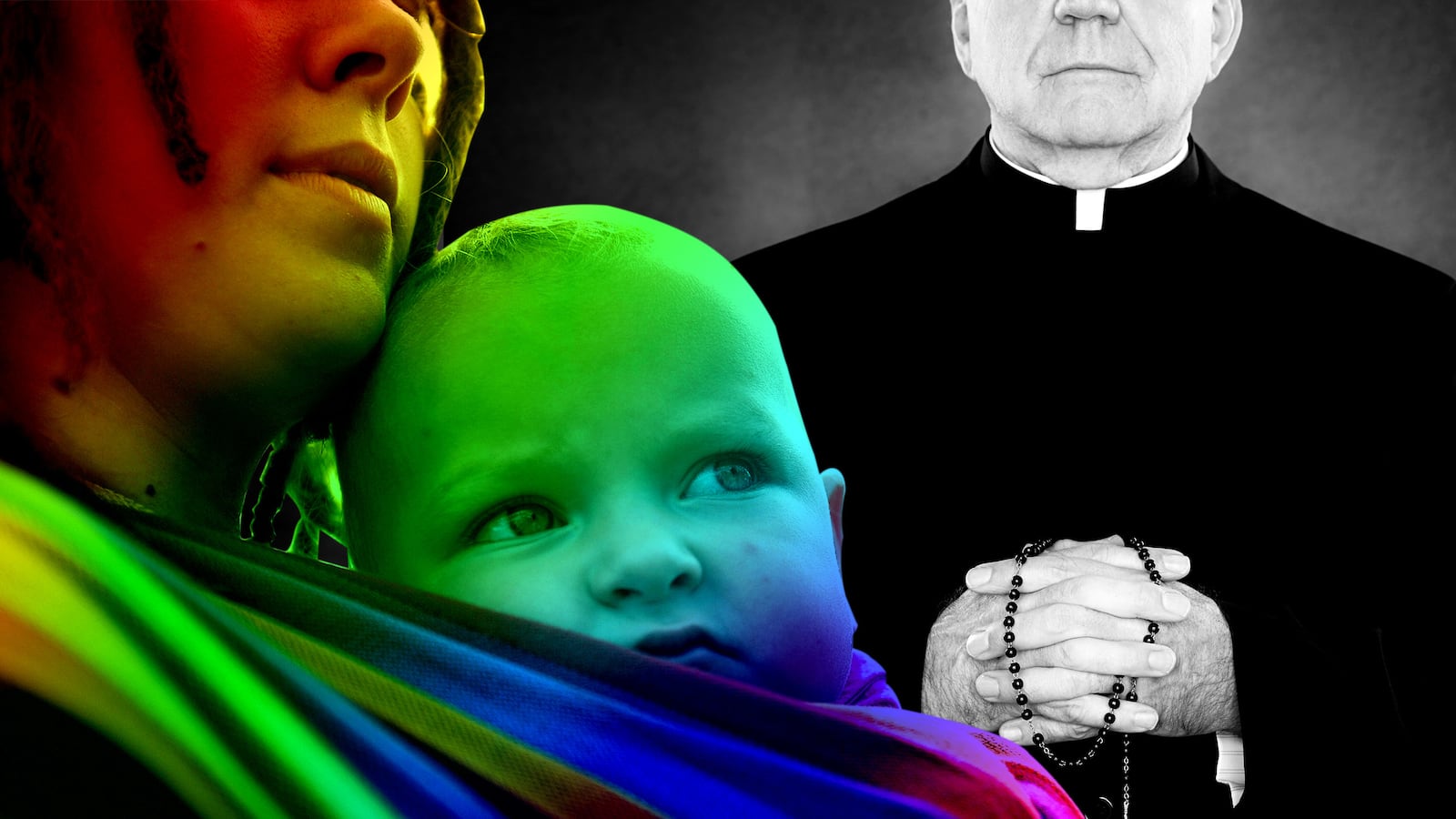Last week, the Vatican released the final report from its Synod on the Family, a meeting that had generated enormous attention from the media and beyond. Given the major themes of the report, primarily focused on the possibilities of official Church hospitality towards nontraditional family structures, as details emerged, the responses were largely predictable: handwringing on the right, celebration on the left. Yet in everything that has been written and said about the meeting and the report, no one on any side seems to have taken note of the logical and practical implications of the Synod's statement for childless women and couples.
Children are present throughout the report—and in fact, children are assumed present in the various nontraditional relationships under discussion. When it comes to couples who either cohabit or have had a civil marriage, and are therefore not in fact married in the eyes of the Church, the report outlines a set of characteristics that may allow the relationship to “be seen as an opportunity to accompany development toward the sacrament of marriage.” Some of these are essentially what any marriage counselor would advise before planning a wedding: “a notable level of stability through a public bond,” “deep affection,” “a capacity to withstand tests.” But included on the list is “responsibility with regard to offspring.” This is a clear limitation on the Church’s new openness in the report to nontraditional families (in Catholic terms): As the Church looks to address the lives of its parishioners on an individual basis, those with children can expect more leniency and understanding than those without.
It is not news that the Catholic Church is in favor of families having children. It continues to be the official position that “being open to life” is “an intrinsic requirement of married love.” There is a question, however, as to whether families with children are valued differently—more highly—than families who do not, or cannot, have children. According to the report, in the early years of marriage “couples need to be encouraged toward a fundamental welcome of the great gift of children.” Many couples, however, need no encouragement to be “open to life” but find that door closed to them by circumstances beyond their control.
What, then, of those committed couples? Are they unworthy of the sacrament, or are they not even desired members of the sacramental community?
Even divorced people, who enjoy only a liminal status in the Catholic Church on account of the Church’s position regarding “the indissolubility of marriage,” have now found a certain acceptance—again, provided children are involved. For those who are divorced and have not remarried, “the local community and pastors have to accompany these people with solicitude, particularly when there are children involved or they find themselves in a serious situation of poverty.”
At stake in much of the Church discussion is whether a divorced individual can participate in the sacraments of the Eucharist. For those who are divorced and have since remarried, it seems that this possibility is in fact open, at least “in some special situations and under strict conditions, especially … related to moral obligations toward their children.” Those with children may be readmitted to full communion through penance; those without might be out of luck, given that one of the deciding factors is the very existence of so-called “extenuating circumstances.”
Again: what of the middle-class divorced woman who does not have children because she cannot?
The most discussed passage of the report is the one that is no longer there: the language about welcoming homosexuals that was cut from the final version. While great attention was paid to the language about homosexual unions being “a precious support in the life of the partners,” no note seems to have been taken of what was, in the earlier version, the last word on the subject: “The Church pays special attention to the needs of the children who live with couples of the same sex, emphasizing that the needs and rights of the little ones must always be given priority.” In other words: homosexual unions that involve a child were considered worthy of more potential acceptance than those that may not.
This is not to say that the focus on children in the report is entirely misplaced. It is, of course, vitally important to remember how Church policies affect children. As the Synod notes, “children are the real victims of family breakups.” It could be argued either that the deliberately childless could (unlike couples who have had children) acquire annulments or that the focus in the report on remembering children is meant to calm the nerves of more conservative bishops. But there is still no mention, in the report or in any of the public conversation it has engendered, of the difficult circumstances, biological impairments, or pastoral needs of the childless.
The generous position would be to chalk up this failure to account for the childless to an oversight, or perhaps a lack of awareness about this specific class of people. It is tempting, however, to think that with these newly lenient policies the Vatican is playing the numbers, rather than liberal politics. From the perspective of the Church, perhaps the most pressing result of the breakdown of traditional marital scenarios is that, as the Synod report says, “The transmission of faith from parents to children has often been interrupted.” If the Church is to survive and thrive moving forward, it is the children of those who have strayed that must be accounted for and reintegrated into the faith. Those nontraditional families that cannot produce children are, from such a perspective, of no practical value.







